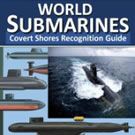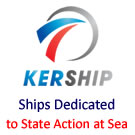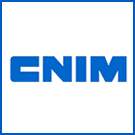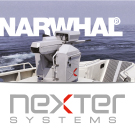 Type 216 SSK. Image: TKMS |
|||
“Today’s
revealing of the hull section at the Australian Marine Complex (AMC),
Henderson is a perfect example of how leaders in the global shipbuilding
industry are changing the way they will do business in the future. ThyssenKrupp
Marine Systems is at the forefront of integrated digital design, construction
and sustainment and sees IPDE as an area of huge potential as Australian
shipbuilding meets the challenges of the future. The spin-off impact on
advanced manufacturing in Australia will be enormous,” Dr White
said today.
ThyssenKrupp Marine Systems is participating in the Federal Government’s Competitive Evaluation Process to select the International Partner to build Australia’s next generation of submarines and sees advanced manufacturing, using digital design, construction techniques and data management, as a key part of its approach. “The use of digital technologies in advanced manufacturing provides a generational opportunity for our country, as we can now design and build a submarine, being one of the most complex pieces of defence equipment, by bringing all required skills and capabilities together and maximising cost and resource efficiencies. Integrated digital production extends across all aspects of the build, including fit–out, then configuration management, monitoring and support through the operating life-cycle of each submarine.” he said. “With the Federal Government’s stated commitment to advanced manufacturing and the future of the Australian naval shipbuilding industry, we believe local industry can benefit from an Australian submarine build. It also complements Prime Minister Turnbull’s Innovation Statement last week which set Australia on the path towards a much more innovative and competitive era, something we fully endorse.” “Importantly, it means that having agreed on the final design of the new submarine fleet in accordance with the Department of Defence’s specific requirements, the process of building the fleet can be completed in Australia using local companies like Civmec, Austal and ASC among others. They will effectively have TKMS as a partner in their workshops and drawing offices, 24/7, as part of a seamless digital data link – effectively an industrial internet.” "The TKMS 'digital shipyard' system, based on the Siemens PLM TeamCentre software, neutralises geographic separation and enables construction with much less errors, re-work, and associated delays and cost increases, than with traditional shipbuilding practices." AMC-based Civmec’s Executive Chairman, Mr James Fitzgerald said “The construction of this submarine hull section is testament to the high levels of productivity and quality achieved through the use of technology. Civmec has achieved the transfer of data and the dimensional accuracy required for the construction of a modern submarine. Interfacing our production management system, Civtrac, with the TKMS IPDE has allowed the design detail to be transferred seamlessly into our manufacturing process control system.” The construction of the submarine hull section was a self-funded Civmec initiative to demonstrate the capabilities resident within the company. Dr White said that his company has engaged already with approximately 500 companies around Australia who could take part in a local submarine build: “There is no doubt from our Industry roadshow held earlier in the year around Australia there are significant local engineering, technology and construction skills right here. It also means that by entering ThyssenKrupp’s global supply chain, as many companies have now done through the industry day process, local businesses can be part of a viable national shipbuilding industry with the potential to replicate if not exceed the mining and car manufacturing industries,” Dr White said. “Today’s exciting event here at Henderson is a tangible example of what the future of shipbuilding in Australia looks like.” he concluded. |
|||
TKMS Details Bid for Australia's SEA1000 Submarine Program
- Posted On











